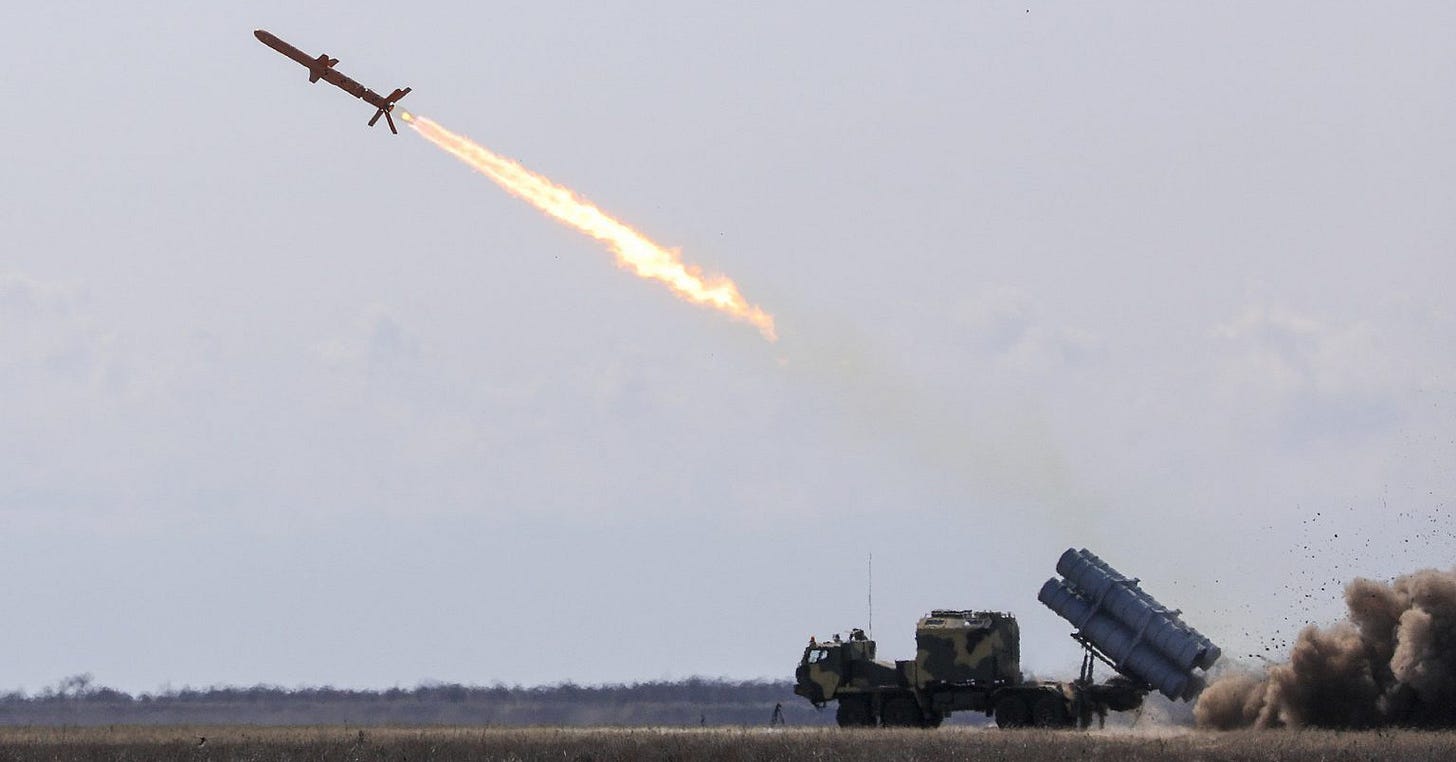Ukraine's Missile Crews Are Valuable Targets Now
Neptunes and other long-range cruise missiles pose a growing threat—so Russia is targeting them on the ground
A Ukrainian Neptune cruise missile battery tried to strike targets in southern Russia’s Krasnodar Krai region on Thursday. The strike failed as Russian S-300 air-defense missiles rose to intercept the incoming Neptunes—and then the Russians struck back.
A surveillance drone spotted a truck-mounted Neptune launcher, apparently the same launcher that targeted Krasnodar Krai. An Iskander ballistic missile streaked down, damaging if not destroying the Ukrainian launcher.
The hit on the Neptune battery underscores the risk to Ukrainian forces as they induct new and harder-hitting drones and missiles and escalate their deep strike campaign bombarding Russian factories, air bases, oil refineries and other strategic targets.
Russian troops and key war-industry workers are in growing trouble as the Ukrainian munitions strike farther and harder. But the Ukrainian missile and drone crews aren’t immune to harm. Russia is responding to Ukraine’s deep strike campaign with a counter deep strike campaign.
It’s unclear what the Ukrainian Neptune battery was trying to hit in Krasnodar Krai. There’s no shortage of targets, including air bases, air-defense sites and others. In any event, Russian surface-to-air missile batteries were ready, for once.


